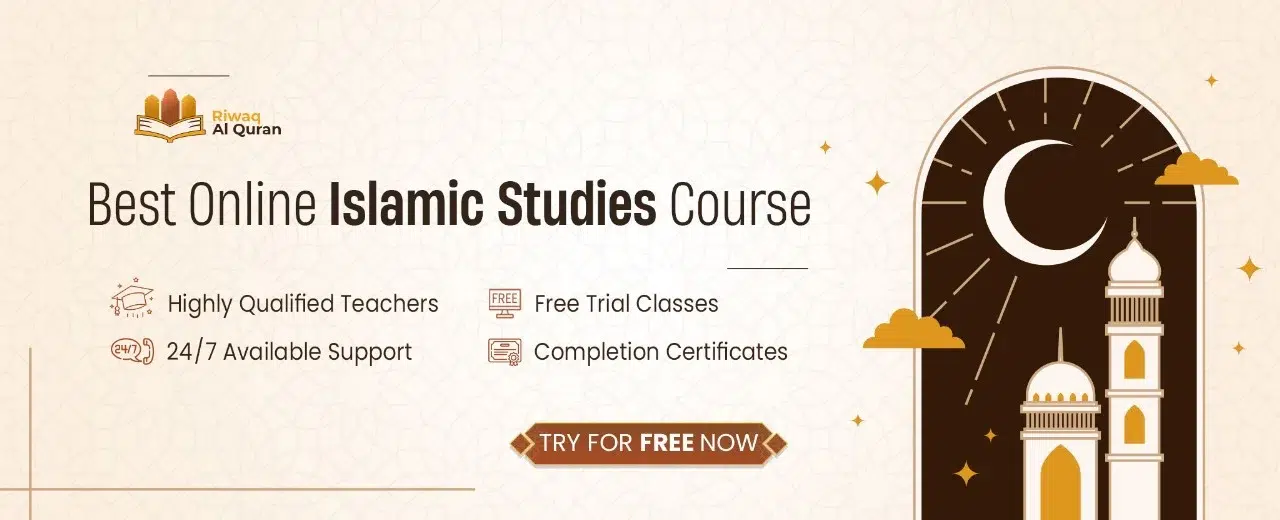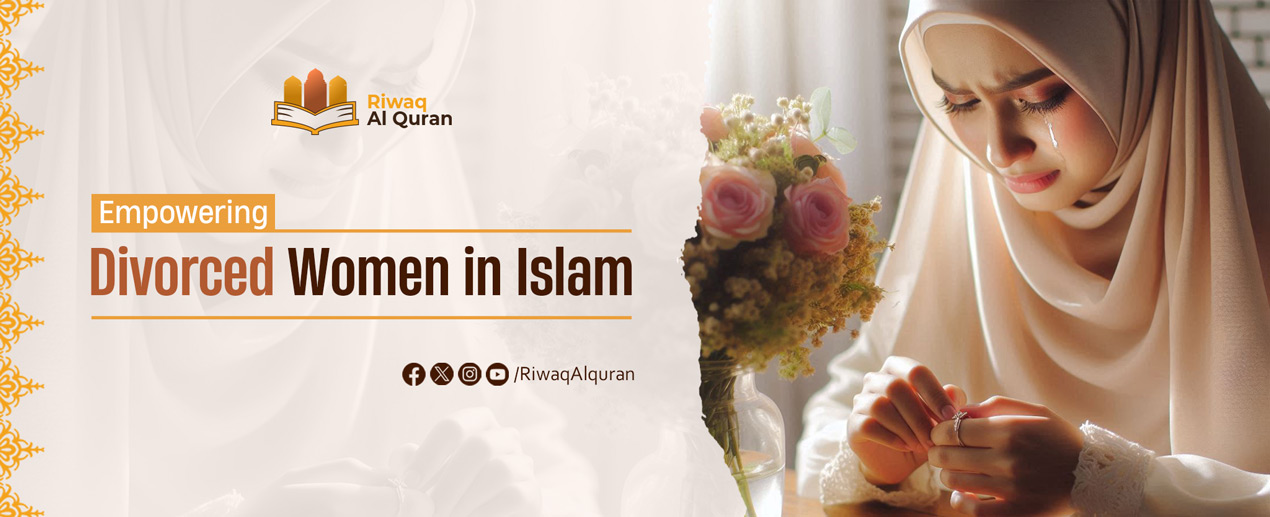Islam grants women comprehensive rights after divorce to ensure their dignity, financial stability, and emotional well-being. These rights include the delayed dowry, maintenance during the waiting period, child support, housing, and the right to remarry.
This article explores the rights, challenges, and societal perspectives of divorced women in Islam. It delves into the financial rights guaranteed by Sharia, such as Mehr and Nafaqa, custody of children, and the right to remarry.
The article also addresses the social stigma, economic difficulties, and emotional challenges faced by divorced women. Additionally, it highlights support mechanisms available through family, community, and Islamic organizations. It provides comparative perspectives from different Islamic countries. Understanding these aspects is crucial for promoting awareness and support for divorced women within the Islamic framework.
This comprehensive article explores the various aspects of divorce for women in Islam, detailing their rights, the challenges they face, and the support mechanisms available to them.
Table of Contents
Divorce definition in Islam:
In Islamic terminology, divorce (ṭalāq) is defined as the dissolution of the marriage contract through a specific verbal statement or any expression that indicates divorce. The marriage that is dissolved through divorce must have been initially valid, meeting all its conditions and requirements.
Normally, divorce is initiated by the husband alone, but he may delegate someone else to pronounce it on his behalf, or it may be pronounced by a judge without delegation.
Divorce can also occur through khulʿ, which is initiated by the wife or her guardian if she cannot continue the marriage due to specified and agreed-upon conditions.
Additionally, judicial divorce can be granted based on various conditions and considerations, entailing rights for both parties. Linguistically, divorce signifies liberation and release, where a woman becomes free from her husband’s guardianship.
the first instance of divorce (ṭalāq) occurs when a husband, who is of sound mind and acting of his own free will, pronounces an explicit statement of divorce, such as “You are divorced” or “You are released,” or uses a metaphorical expression of divorce with the intention of divorce.
This declaration should be made while the wife is in a state of purity (not on period) and has not engaged in sexual relations during that period. After the first divorce, the wife must observe her waiting period (ʿiddah) in her husband’s home, where she is still considered his wife.
During this time, the husband is responsible for her financial support, and they may have privacy and travel together. The husband can reconcile with his wife during the ʿiddah by either verbally stating, “I take my wife back,” or by resuming marital relations.
This reconciliation is detailed in the referenced Islamic rulings. If the divorce occurs before consummation or seclusion with the wife, a single divorce is sufficient, and she becomes completely separated from him. She would only be permissible for him again through a new marriage contract.


Rights of Women After Divorce in Islam
Islamic law, or Sharia, provides several rights to women after a divorce to ensure their dignity and well-being. These rights include:
- Mehr (Dower): The husband must provide the agreed-upon dower at the time of marriage, and if it has not been fully paid, it must be settled upon divorce.
- Nafaqa (Maintenance): The husband is obligated to provide financial support to the wife during the waiting period (iddah) following the divorce.
- Custody Rights: Women generally have the right to custody of young children, though the specifics can vary based on the child’s age and the mother’s circumstances.
- Freedom to Remarry: Divorced women have the right to remarry after their waiting period, and they should be supported in their decisions without stigma.
Here is the details of the Rights of Women After Divorce in Islam:
1. Delayed Dowry (Mahr)
The Mahr (dowry) is a fundamental right of the wife, and if it was deferred at the time of marriage, it becomes due upon divorce. The Quran states:
“And give the women their dowries as a free gift. But if they, of their own good pleasure, remit any part of it to you, take it and enjoy it with right good cheer.” (Quran 4:4)
If the husband divorces his wife, he must pay the remaining portion of the Mahr if it was not already given in full.
2. Maintenance During the Waiting Period (Iddah)
During the Iddah (waiting period after divorce), the husband is obligated to provide maintenance for his ex-wife, including food, clothing, and shelter. This applies in cases of revocable divorce (where the husband can take his wife back without a new contract). The Quran says:
“Lodge them where you dwell, according to your means, and do not harm them to make their lives difficult. And if they are pregnant, then spend on them until they deliver their burden.” (Quran 65:6)
If the divorce is irrevocable (final), the wife is only entitled to maintenance if she is pregnant.
3. Compensation (Mut’ah)
Mut’ah is a form of financial compensation given to the wife as a gesture of goodwill after divorce. It is meant to ease her transition and provide emotional and financial support. The Quran mentions:
“And for divorced women is a provision according to what is acceptable—a duty upon the righteous.” (Quran 2:241)
The amount of Mut’ah depends on the husband’s financial capacity and the circumstances of the divorce.
4. Child Support and Custody
If the divorced couple has children, the father is responsible for providing financial support, including food, clothing, education, and healthcare. The mother has the right to custody of the children, especially during their early years. The Quran emphasizes:
“Mothers may breastfeed their children for two complete years for whoever wishes to complete the nursing period. Upon the father is their provision and their clothing according to what is acceptable.” (Quran 2:233)
The father must also provide housing for the children if they are in the mother’s custody.
5. Housing Rights
A divorced woman has the right to suitable housing during the Iddah period. If she has custody of the children, she is entitled to a home where she can raise them comfortably. The Quran states:
“Lodge them where you dwell, according to your means.” (Quran 65:6)
If the husband cannot provide housing, the court may intervene to ensure the wife and children have a proper place to live.
6. Inheritance Rights
If the husband passes away during the Iddah period, the divorced wife retains her right to inherit from him. The Quran specifies:
“For divorced women is a provision according to what is acceptable—a duty upon the righteous.” (Quran 2:241)
This ensures that the wife is not left financially vulnerable after the death of her ex-husband.
7. Right to Remarry
After the Iddah period, a divorced woman has the right to remarry if she chooses. Islam does not impose any restrictions on her ability to start a new life. The Quran affirms:
“And when you divorce women and they have fulfilled their term, do not prevent them from marrying their husbands if they agree among themselves on an acceptable basis.” (Quran 2:232)
This right empowers women to move forward and rebuild their lives.
8. Protection from Harm
Islam prohibits husbands from causing harm or hardship to their ex-wives. The Quran warns:
“And do not make difficulties for them to take away some of what you have given them.” (Quran 4:19)
This ensures that women are treated with kindness and respect, even after divorce.
9. Right to Seek Legal Redress
If a divorced woman feels that her rights are being denied, she has the right to seek legal redress through the courts. Islamic law provides mechanisms to enforce the rights of women and ensure justice. The Quran states:
“And if you fear a breach between the two, appoint an arbiter from his family and an arbiter from her family. If they both desire reconciliation, Allah will cause it between them.” (Quran 4:35)
This verse highlights the importance of fairness and mediation in resolving disputes.
10. Emotional and Psychological Support
While not a legal right, Islam encourages kindness and compassion toward divorced women. The Prophet Muhammad (peace be upon him) said:
“The best of you is the one who is best to his wife, and I am the best of you to my wives.” (Tirmidhi)
This principle extends to how divorced women are treated, emphasizing the importance of empathy and support.
Can Women Divorce in Islam? And How?
Yes, women can initiate a divorce in Islam. There are several methods available for a woman to seek a divorce:
- Khula: A process where the woman initiates divorce by returning her dowry or another agreed compensation to the husband.
- Tafreeq or Faskh: Judicial divorce granted by a court on grounds such as cruelty, abandonment, or failure to provide.
Is It OK to Marry a Divorced Woman in Islam?
Islam encourages the fair treatment and respect of divorced women. It is permissible and often encouraged to marry a divorced woman, as this helps in integrating them back into a supportive family environment. The Prophet Muhammad (PBUH) himself married divorced women, setting a precedent for the Muslim community.
Who Takes Care of a Divorced Woman in Islam?
After a divorce, the woman’s family typically provides support, but the broader community and Islamic organizations also play vital roles. In some cases, financial assistance and counseling are available to help divorced women navigate their new circumstances.
What Does the Quran Say About Divorced Women?
The Quran provides specific guidelines on the treatment of divorced women. Verses such as Surah Al-Baqarah (2:231-232) emphasize fair treatment, financial support, and respect. These verses underline the importance of ensuring that divorced women are treated with dignity and compassion.
Read a full guide on: When Can A Woman Take Off Her Hijab? Woman Without A Hijab Rules
What Should Women Do After Divorce?
After a divorce, women are encouraged to seek support from family and community resources. They should pursue their rights for maintenance and custody, engage in self-care, and consider avenues for personal and professional development.
Consequences of Divorce in Islam
Divorce in Islam can lead to several consequences, including:
- Social Stigma: Divorced women often face negative societal attitudes and stigma.
- Economic Challenges: Financial instability can be a significant concern post-divorce, especially if the woman was not previously employed.
- Emotional Impact: Divorce can have a profound emotional impact, necessitating strong support systems.
Can a Woman Ask for a Divorce in Islam?
Yes, women can ask for a divorce through processes like Khula and Tafreeq. These mechanisms are designed to protect the rights and well-being of women, ensuring that they are not trapped in unhappy or harmful marriages.
The Islamic Society Help Divorced Women:
By leveraging these family and community resources, society can play a pivotal role in helping divorced women rebuild their lives, ensuring they are supported emotionally, financially, and socially. These mechanisms ensure that women do not face their challenges alone.
Family Support
- Emotional Support: Family members provide emotional comfort and stability, helping divorced women cope with the stress and trauma of divorce.
- Financial Assistance: Families often step in to provide financial support, ensuring that the divorced woman can meet her basic needs and those of her children.
- Custody and Childcare: Extended family members may assist with childcare, offering a support system that helps the woman manage her responsibilities more effectively.
Community Support
- Community Organizations: Various Islamic and community organizations offer support programs, including counseling, legal aid, and financial assistance.
- Social Networks: Community networks provide a sense of belonging and reduce the isolation that divorced women might feel. These networks can also offer practical help, such as job opportunities and housing assistance.
- Religious Guidance: Local mosques and religious leaders can offer spiritual guidance and counseling, helping divorced women find solace and direction through their faith.
The combined support from family and community ensures that divorced women in Islam are not left to face their challenges alone. This support network helps them to maintain their dignity, secure their rights, and integrate back into society with strength and confidence.
How is Islam Promoting Awareness and Support for Divorced Women?
Understanding the rights, challenges, and support mechanisms for divorced women is crucial for promoting awareness and support within the Islamic framework. This knowledge ensures that the community respects and upholds the dignity of divorced women, providing them with the necessary resources to rebuild their lives.
Key Reasons for Understanding These Aspects:
- Enhancing Support Systems: By understanding the specific needs of divorced women, family, and community support systems can be more effectively mobilized to provide emotional, financial, and social assistance.
- Reducing Stigma: Awareness helps to combat the social stigma associated with divorce, fostering a more inclusive and supportive environment.
- Ensuring Rights: Educating the community about the rights of divorced women as outlined in Islamic law helps ensure these rights are respected and upheld.
- Building Community Resilience: Strong support networks not only aid divorced women but also strengthen the overall community by promoting compassion, justice, and solidarity.
By fostering an informed and supportive environment, society can help divorced women navigate the challenges they face and promote their well-being and empowerment within the Islamic framework.


Learn Quran, Arabic And Islamic Studies Online With The Best Native Tutors
Riwaq Al Quran is a comprehensive online platform that offers personalized Quran, Arabic and Islamic Studies Online classes for individuals of all ages and backgrounds.
Their experienced instructors use a structured curriculum to cover Tajweed, Tafsir, and Memorization, providing easy and effective access to learning the Quran.
The advanced online classes allow for seamless communication and interaction between students and teachers. Join Riwaq Al Quran for a deeper connection with the Quran.
We offer several courses such as:
- Online courses for kids.
- Online Quran classes for kids and adults.
- Online Arabic courses
- Online Ijazah courses
- Online Islamic Studies courses.
Here are a sample of our set of Quran Courses that will be helpful for you:
- Online Tafseer Course: Delve into Quranic meanings with our insightful online Tafseer course.
- Noorani Qaida Online: Learn Quranic basics efficiently through our Noorani Qaida online program.
- Online Quran Recitation Course: Enhance Quranic recitation skills through our expert-led online course.
- Online Tajweed Classes: Master Tajweed rules for beautiful Quranic recitation in online classes.
- Quran Memorization Online Course: Memorize the Quran effectively with our specialized online memorization course.
- Online Qirat Course: Explore diverse Qirat styles with our comprehensive online Qirat course.
- Online Quran Classes for Kids: Nurture a love for the Quran in kids through interactive online classes.
Conclusion
Divorced women in Islam are entitled to significant rights and protections, but they also face challenges that require robust support from family, community, and Islamic organizations. By understanding and addressing these aspects, society can ensure that divorced women receive the respect, support, and opportunities they deserve.
May Allah guide us to uphold justice and kindness in all our dealings. Ameen.


































